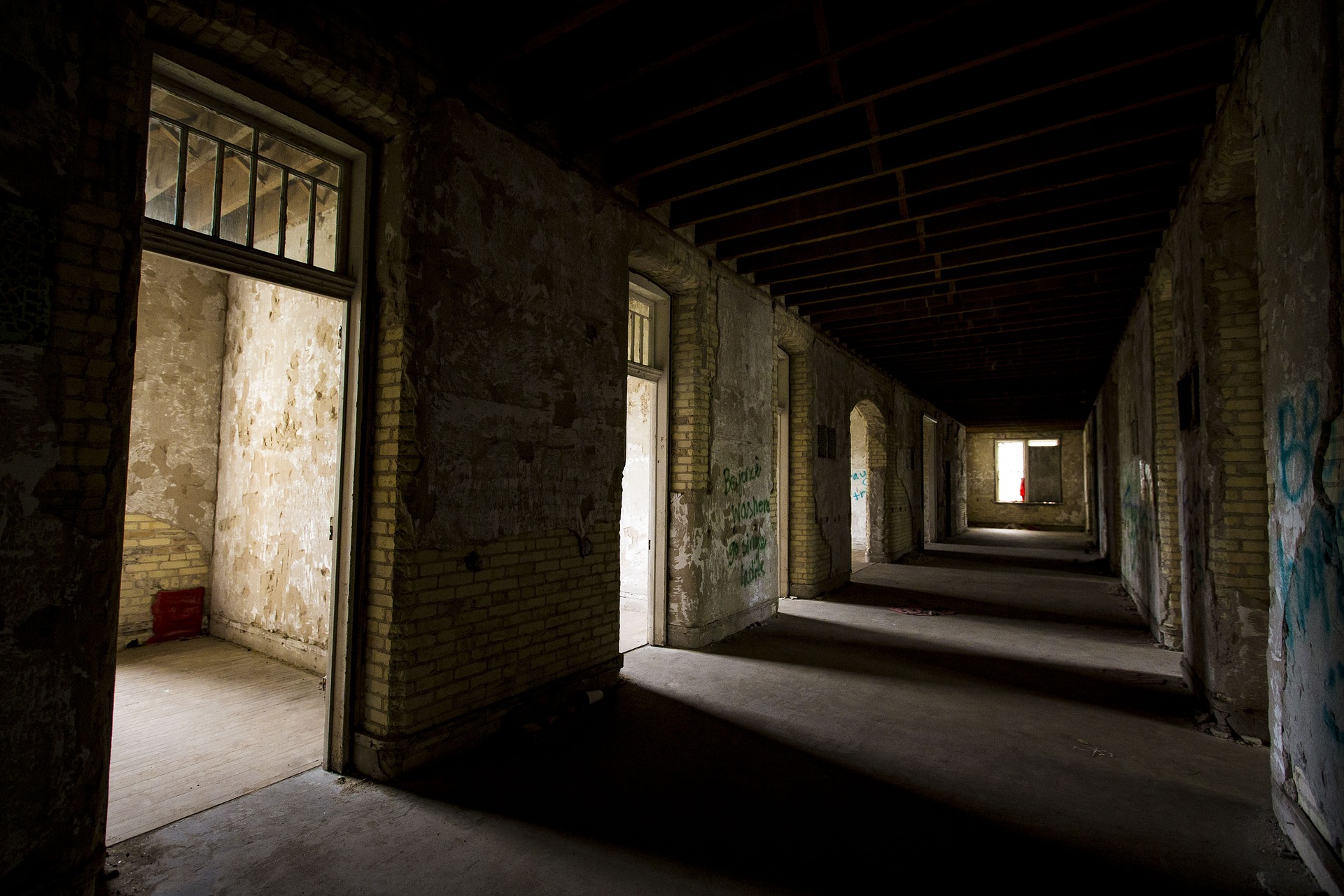They slipped him in during the night. We all woke up in the morning to find him there, in a sitting position, occupying the bed beside the man who screamed God’s names each day they changed wound dressings. My first thought on seeing him sitting there, shirtless, his torso rising and falling heavily in an unending sequence, an oxygen mask strapped onto his face, was of a gigantic mollusk hurrying across a highway. A tall man with a long torso: he had the body of a swimmer. His head and face were shaved clean. His eyes were large and bore remnants of a glorious glint. His skin, a deep hue of brown, was rich from a lifetime of good nourishment. A tall gas cylinder stood like a sentry behind him.
During visiting hours, he would receive guests who dressed boldly, their shoes clicking with purpose on the floor tiles when they walked in and out of the ward, bearing gifts that The Mollusk would never open or even notice were brought. He never smiled or frowned, barely ever acknowledged anyone, only focused on that one job: heaving.
I heard a ward porter—the one who often spent her idle time chatting with the guy on the bed beside mine—talk about how The Mollusk had been referred here, to the University College Hospital in Ibadan, from the big federal hospital in Abuja, where he lived, because his case was beyond what the doctors there could handle. He had already lost a limb to cancer, and now, barely three years later, he is an in-patient again; this time he is fighting to keep his lungs into which the cancer had sneaked and staged a revolution. He had to be brought here—an orthopedic ward—because the male cancer ward as well as the intensive care unit had no space. She giggled as she spoke in a low voice, the porter. My neighbor also giggled, tilting his head towards the porter, his left thigh suspended in a traction.
The Mollusk seemed to me like a cool grandfather, the kind one could imagine, under a different circumstance, would sit for a drink on the balcony of a duplex apartment, talking to his grandsons about his back-in-the-day philandering. But now he was a mollusk, removing his mask only briefly a few times to make requests. Every morning, the sun flooded in through the large windows on the wall behind me and hit the glossy wall behind The Mollusk. I’d spend my mornings watching him glow brilliantly when the lights hitting the wall ricocheted and bathed him in gold.
During those mornings I would wish he was my father, or my grandfather; someone with whom I would have gone for a swim during a family picnic at a beach. I would sit up on my bed and watch him as he heaved, wishing I could leave my bed to sit beside him. I would watch him while I had breakfast; I would swallow my medication watching him. I would watch him till I was exhausted, then I would fall asleep. With the business of your body’s healing out of your control, hospital wards are like prisons without anyone trying to pick on you; all you do is lie there and wait. Food and sleep only recharge you to wait out the next day. Watching The Mollusk every morning became my daily regimen.
Jesus, you’ve disappointed me, Jesus you’ve disappointed me. I snapped awake and located the voice hauling blames at Jesus. It was a woman’s, and she was being half-dragged out of the ward. She was resisting timidly, as though her resistance was only a social obligation that must complement the very act of being dragged away. I could still hear her from outside the ward declaring her disappointment in Jesus. Nurses had charged in and pulled shut the curtain screens around The Mollusk’s bed, but there was a small opening at one end of the screens through which I glimpsed, for the first time, when, in the chaos, the cloth which always covered The Mollusk’s legs had been flung off, the stump above where his right knee and everything else below it should be. He was not in his usual sitting posture. He is on his back, a solid mass. He was not heaving. The silhouette of a nurse stooped over his chest while another was bending down intermittently as though to kiss him. I was glancing back and forth between the entrance at the far end of the ward and the small opening between the curtains screens, wondering how far away the doctors were.
I can’t remember now if they ever arrived, the doctors, because, in the end, it did not matter. The Mollusk soon sat back up, wore his oxygen mask and was heaving again; his stump slipped back under the covers, and his torso was, again, rising and falling. Rising and falling. He continued to be the one who, every morning, transformed a young sunlight into a golden stream from which I continued to drink. And even when, the next day, The Mollusk’s bed was disinfected and a new guy who had fractured a femur and a wrist was moved in, it was The Mollusk who continued to sit there, dedicated to his heaving, and, in the mornings, bathing in the gold elegance of light.
Nurain Oladeji is a Nigerian writer. Hie work has appeared in Acumen Poetry Magazine, Dunes Review, The Chaffin Journal, and elsewhere.
